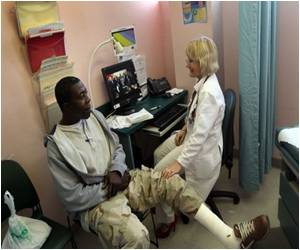It is not that Hispanics are unaware of the health care options available, but just don’t want to spend money if they can manage without insurance.

“It surprised us a little bit that they are ahead of the rest of the country when you look at how they live their lives and in the way that they talk about having multiple jobs, being on the go. They really live their lives on their devices.” 10 million Hispanics are newly eligible for health insurance under the 2010 Affordable Care Act. Online insurance exchanges where people can buy heavily subsidized health insurance are set by the federal government
About 10 percent among those signing up for private health insurance are Hispanic, according to the Obama administration. “Hispanics have tremendous consumer purchasing power, but our research shows that they have also been more likely than other consumers to delay health care, and don’t have great trust in the U.S. health system,” said Frank Lemmon, principal for PwC U.S. health industries. “As the health industry shifts in how and where care is delivered — in many cases closer to home — these long-standing behaviors and attitudes are ripe for change.”
43 percent of Hispanics delayed health care due to cost, compared to 35 of the non-Hispanics. Hispanics would compromise over quality care to save costs according to the research. In a study by Pew Research less than 50% Hispanics have regular doctors. . “In many countries in Latin America, they are going to pharmacies for much more of their care than just picking up a prescription,” she said in an interview. Hispanics are also leaders in technology, even if they are less likely than other Americans to have a home computer. “We definitely think the rest of the country is following close behind in the use of technology for health care,” Connolly said. “Nearly one-fifth of Hispanics said they are already using an app or the Internet to make medical appointments; another 31 percent said they would be very willing to,” the report says.
“Companies should tap into Hispanics’ mounting purchasing power, ‘do-it-yourself’ mentality, and willingness to seek care in non-traditional settings. Look to this demographic to pilot mobile health apps ranging from diagnostics to chronic disease management. Hispanics may be the first adopters of these tools,” the report advises. Hispanics are the fastest growing U.S. minority group, with a growth of 43% since 2000. They account for 30% of the US population. At the same time, companies should not make the mistake of clubbing Hispanics as a single group. “Health care organizations need to approach Mexicans, Puerto Ricans, and other Hispanic subgroups differently,” the report advises. “They also need to understand generational idiosyncrasies and health habits that might be hard to change.”
References:
Hannah Punitha (IRDA Licence Number: 2710062)
 MEDINDIA
MEDINDIA




 Email
Email






